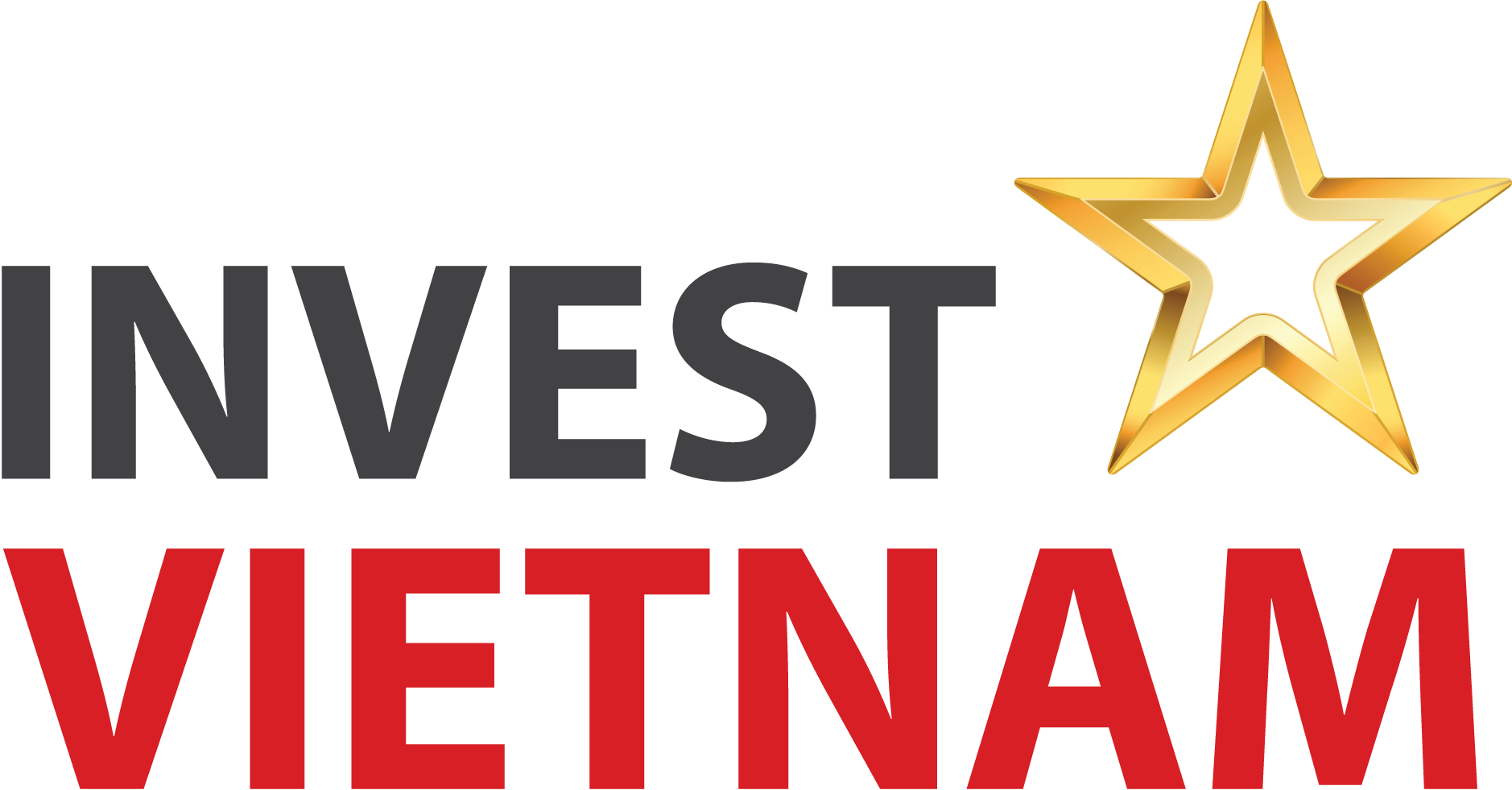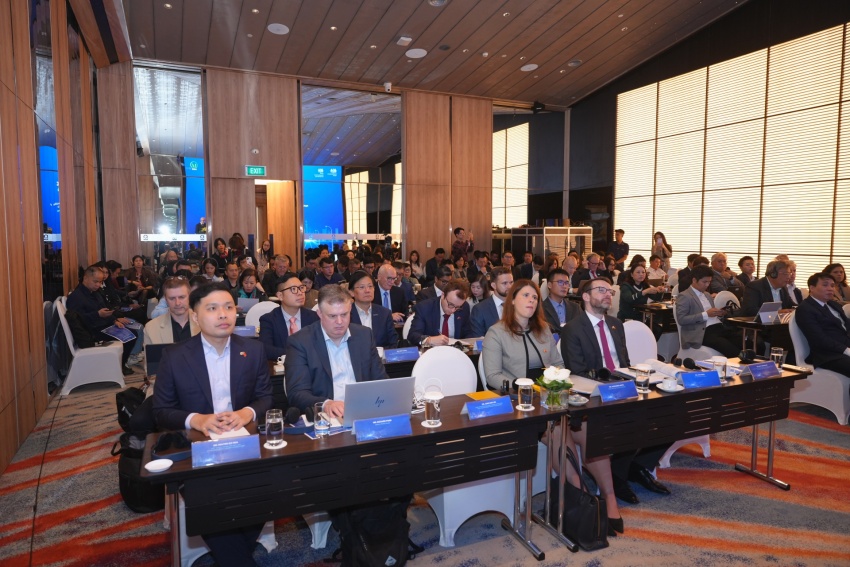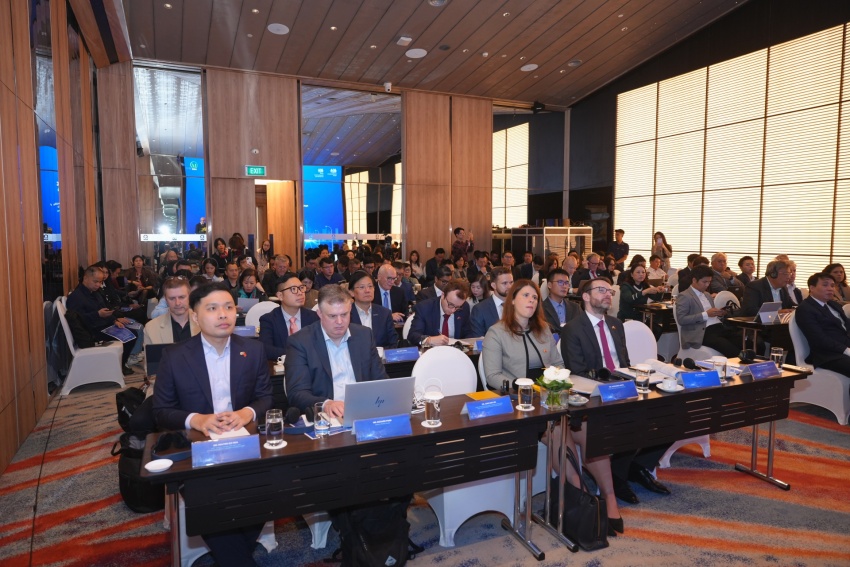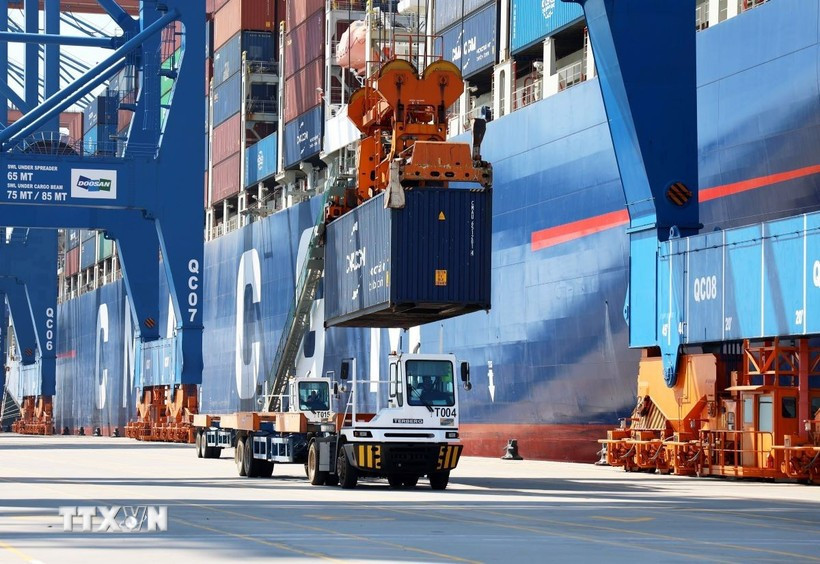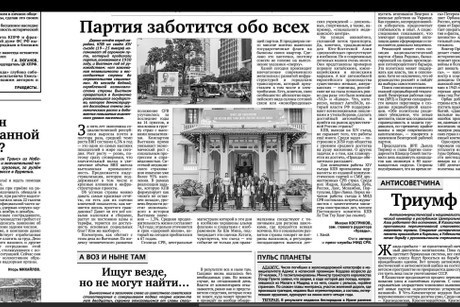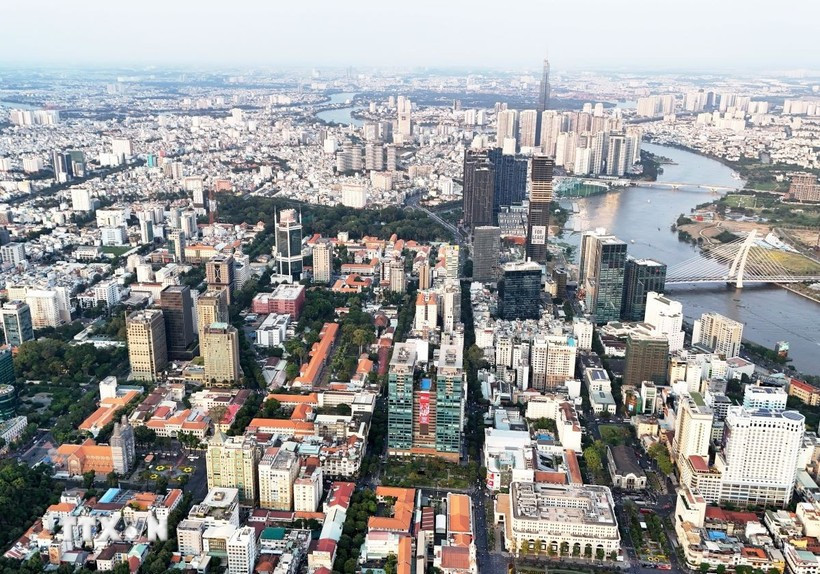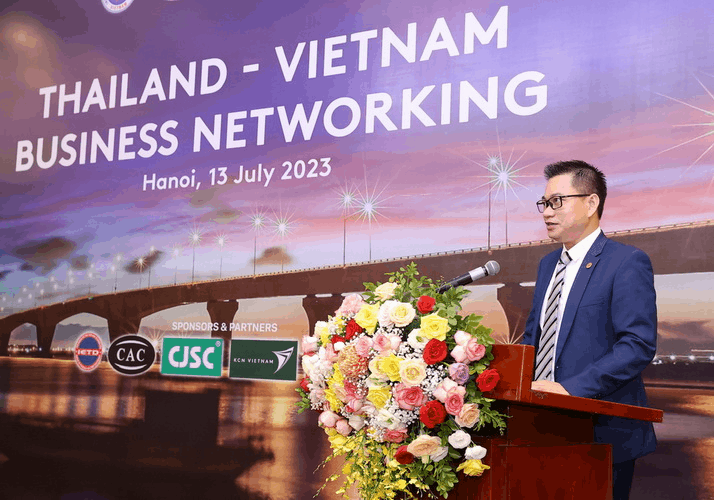FDI focus leans into sci-tech sphere for 2021-2025 phase
Driven by Vietnam’s new orientations on improving the business climate for the 2021-2025 period, more fresh opportunities are expanding in the country, with technology to be among the beneficiaries.
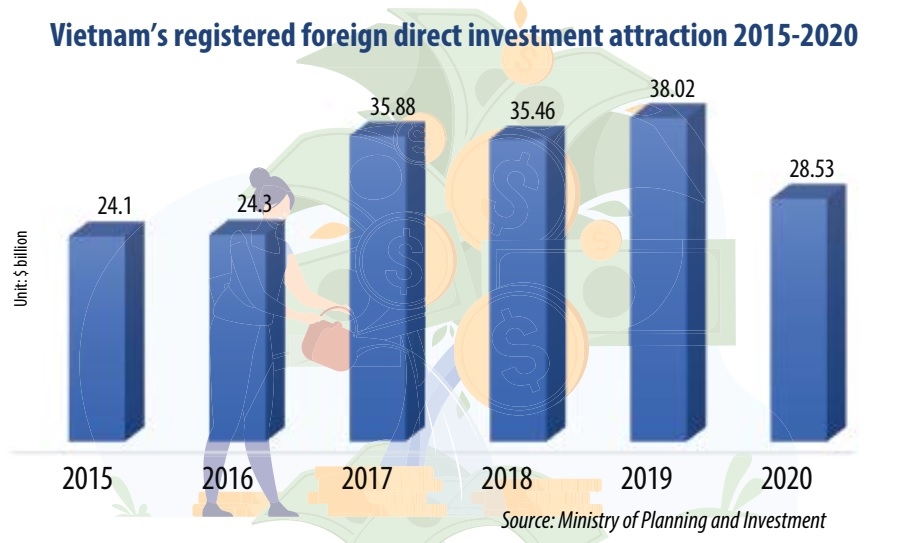
A number of new foreign-invested projects have been licensed already this year. In the northern region, Foxconn received an investment certificate in January for its $270 million Fukang Technology factory in the northern province of Bac Giang. The move is part of the group’s plans to make $700 million investment in the country this year.
In the central region, Nghe An province granted an investment certificate for Shenzhen tech company Everwin Precision’s $200 million project, while neighbouring Quang Binh also approved investment plans for 14 projects worth $1 billion.
And in the south, Dong Nai province lured over $226 million in foreign-invested projects in the first two weeks of the year, making it the highest figure in the same period in the last five years.
Nguyen Mai, chairman of the Vietnam Association of Foreign-Invested Enterprises told VIR, “This is a good signal. More will be coming if Vietnam properly prepares to welcome a new investment wave.”
Fresh orientations
According to the Ministry of Planning and Investment, foreign-invested enterprises are gradually recovering, and some even have planned expansions. Meanwhile, foreign-invested projects aiming to tap into trade agreements are heading to Vietnam.
To prepare for the new wave of foreign direct investment (FDI), in draft socioeconomic development strategies and plans for the decade. a number of specific key tasks and measures have been worked out to improve the business climate, with creation of a breakthrough in regulatory reform being a focus.
According to Nguyen Dinh Cung, member of the Prime Minister’s Economic Advisory Group, regulatory reform will be made to push innovations and digital transformation, as well as development of new products, services, and business models.
The improvement of the business climate is the top issue among foreign investors, including members of the European Chamber of Commerce in Vietnam (EuroCham), as well as Japanese, South Korean, and Singaporean investors among others.
Tomaso Andreatta, vice chairman of EuroCham said, “We welcome regulations such as the decree on deferral of tax payment and land rental, the resolution on tasks and measures to continue removing difficulties for production and business, and proposals of a rescue package with widespread coverage.”
This would enable the equal protection of domestic and foreign businesses, given Vietnam’s strong integration into global supply chains and capital flows.
“We have worked together with the government and the Advisory Council for Administrative Procedure Reforms to support European investments and enable the swift entrance of European and US investors and experts,” Andreatta added.
Similarly, Virginia Foote, chairwoman of the American Chamber of Commerce in Vietnam, said, “As we look to boost economic recovery after COVID-19, there are many things the government can do right now to improve the business and investment climate and to attract new investment.”
Elsewhere, Tetsu Funayama, representative of the Japanese Chamber of Commerce and Industry in Vietnam, said that Japanese companies are concerned when expanding into Vietnam and face challenges when they execute permitted investment or establish a production plant.
In addition, they are confused about tax and labour and concern about energy infrastructure. “Solving these issues will lead to the attraction of FDI not only from Japan but also from other countries,” Funayama noted.
To create such a breakthrough in the business climate improvement, the country will continue to complete and improve the quality of the regulatory reform of the socialist-oriented market economy, with a focus on the market factors of production, especially the market of land-use rights and sci-tech; while mobilising and using resources in line with market mechanism, and developing efficient state apparatus.
Specifically, the country will concentrate on tasks including building and deploying policies to ease COVID-19 impacts to facilitate the economic recovery, and tap into the new opportunities for national development.
Also, the country will continue to cut conditional business lines and conditions, and increase trade facilitation and digital services. It will also increase the efficiency of administrative reform, removal of business barriers, complete the policies on tax, and fees on par with the market condition and international norms, while enhancing IT application and reduce cost for tax and fee procedures for people and businesses.
Regarding the sci-tech market, the country will be further developed together with development of national database on sci-tech; intensification of connection between sci-tech transaction floors and related application and tech transfer centres in localities, and strong development of the network of intermediate services and technology transfer assessment.
On the other hand, the country will build a complete legal framework on testing the mechanism and special policies to accelerate digital transformation, digital economy, and development of new business models, startups, and supply of public services.
Land management policies, which are among international investors’ concerns, will be renovated to create more favourable conditions, thus encouraging the accumulation of farm land, and developing the land-use rights market. Also, the management of farm land use purpose will be also changed towards increasing flexibility, removing the limitations on the subject to farm land transfer, and increasing the term of farm land handover and leasing.
The regulations on assets rights will be reformed, focusing on the registration of asset ownership and use, mortgage assets at banks, and procedure for bankruptcy. Also intellectual property protection, and enforcement of intellectual property rights will be intensified, while building on the standards and norms on par with international practices.
A more favourable business and investment environment is expected as Vietnam aims for the country’s business climate to be ranked in the top 30 countries worldwide by 2030.
Brighter prospects
With great changes in the business and investment climate, together with socio-political stability and population structure, Vietnam has risen as a more attractive FDI destination in Asia, according to a January report by the Economist Intelligence Unit.
The report noted that other factors that make Vietnam more appealing than its regional peers are the incentives for international corporations for setting up facilities to manufacture high-tech products, the pool of low-cost workers, and the proliferation of trade deals.
In line with new orientations, sci-tech businesses in innovation, digital transformation, and new business models will have broadened chances to venture further into the market on the back of the country’s acceleration of embracing digital. In other economic sectors, investors and businesses will gain from more favourable market entry.
The enforcement of free trade agreements such as the one between Vietnam and the European Union and the recently-signed Regional Comprehensive Economic Partnership is expected to enlarge the country’s investment space and trade in the long term.
Also importantly, the Southeast Asian nation’s success in tackling the coronavirus pandemic has increased international ventures’ confidence in the market as a safe destination, together with the enforcement of new laws on investment and enterprises, with a number of long-expected favourable rules included.
The movements of shifting investment among Japanese, South Korean, Singaporean, and European investors have intensified the trend. For instance, in a list released recently by the Japan External Trade Organization, out of 30 Japanese companies that will move their factories out of China, 15 have registered to move to Vietnam.
A number of investment plans announced in the first days of January signalled bright prospects for the foreign investment picture ahead.
By Bich Thuy
Source: VIR
